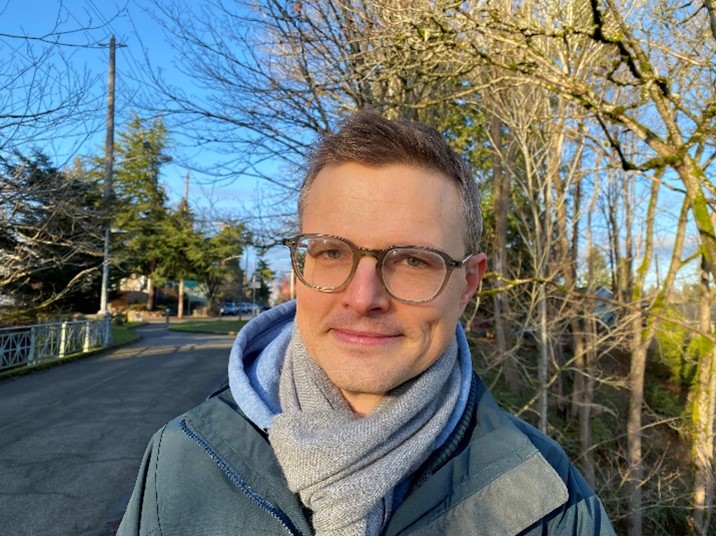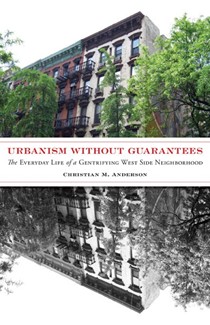The Faculty of Environmental and Urban Change (EUC) and the City Institute at York University will host Christian Anderson – associate professor teaching social thought and action as well as science, technology and society at the University of Washington Bothell – throughout March.

Anderson is visiting as the EUC’s scholar-in-residence and will deliver a seminar on March 14 from 12:30 to 2 p.m, entitled “Without Guarantees: A parallax view of everyday life and place-based urban political economy.” The presentation addresses seldom-recognized consequences of labour, value, narrative and social infrastructure in urban spaces.
Anderson’s residency and seminar closely follow the United Nations Sustainable Development Goals (SDGs) which are formally adopted in the University Academic Plan 2020 – 2025. Anderson’s work – and the work of EUC staff and faculty – brings into focus the vital importance of UN SGD 9 (industry, innovation and infrastructure), UN SDG 10 (reduced inequalities) and UN SDG 11 (sustainable cities and communities).
In preparation for his visit, EUC student researcher Danielle Legault caught up with Anderson for a Q-and-A on his work and residency.
Q: What do you hope to accomplish during your visit to York University and Toronto?
A: My goal for this visit is truly just to connect with people, engage, and learn! There are faculty at York whose work I’ve learned a great deal from and long admired, so I’m excited to connect with them.
But I’m also keen to meet new people who are thinking about contemporary urban questions, get nudged to think about things – or from perspectives – I’m not necessarily familiar with, and make new connections. It’s an honor and a privilege to have been invited to visit.
Q: What issues or problems does your work address?

A: In a nutshell, my work focuses on intersections among place-based urban political economy, everyday life and everyday practice, and formations of popular common sense and culture, especially in contexts of gentrification and social-spatial inequality.
In past work, I’ve addressed these intersections through ethnographic engagements in New York City, which resulted in a book, Urbanism without Guarantees (2020). Focusing very tightly on just four blocks of a single street, the book tries to show how things like gentrification and policing are connected to forms of common sense and everyday practice which, I argue, are informed by people’s ordinary sensibilities and can become embedded in urban space in ways that are quite contingent. I call these “performative infrastructures,” and the upshot is that they can buoy deeply inequitable processes, but might also – if subjected to deliberative critical praxis, concerted organizing, and so forth – be transformed toward different socialities and outcomes.
Q: What impact has your work had outside of academia?
A: I’ve spent several years now building relationships with and learning from organizers, artists, public historians and others doing counter-displacement work in Seattle – a self-avowedly “progressive” city increasingly beholden to the interests of Amazon, an interesting context in itself!
I’ve had the chance to be involved in public discussions and initiatives, several experimental collaborations, and an ongoing place-based oral history project in the historically racially segregated, now rapidly gentrifying, central city. The latter project trains cohorts of community researchers using an “institute” model, which is a direct connection to debates and pedagogies from radical geography.
And it’s been quite challenging to try and think about what kinds of relationships to the university, let alone a public university, are and are not possible or appropriate here – not only in relation to the usefulness and limits of scholarly research, but also in terms of resource-sharing, connections between students and communities, and even questioning the university’s relationships to processes of inequitable urban development in the region itself.
In sum, I’m quite excited to come to York and learn more about and from the kinds of scholarly, public, and community engagement activites everyone is up to, as I’m certain there will be many points of resonance – and generative difference – with things I’ve been working on and thinking about.
Invite Anderson to a class
To arrange for Anderson to visit a class, email city@yorku.ca. The entire York community is invited to attend Anderson’s seminar, and can register here.


